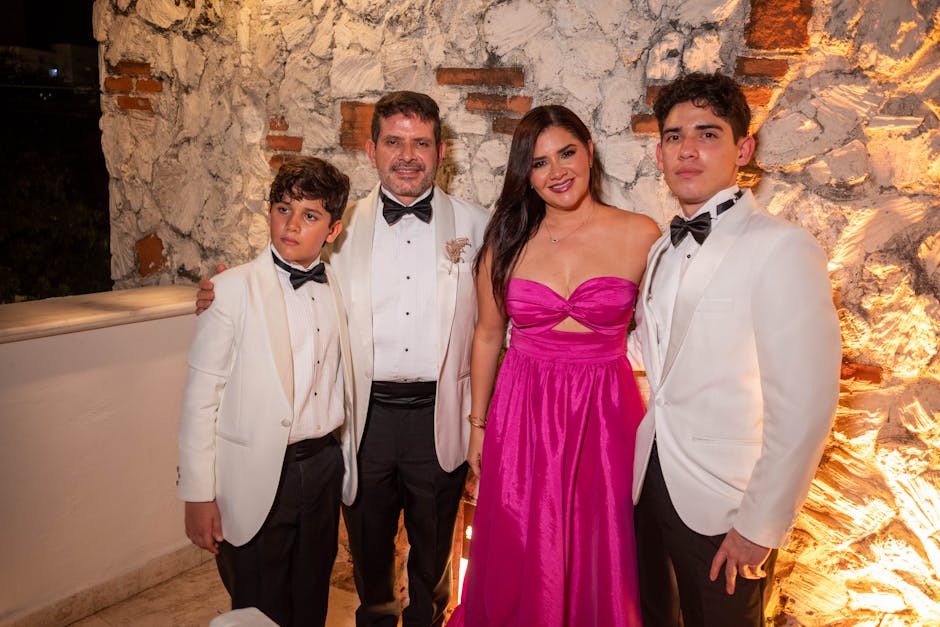Gala: Unveiling the Multifaceted Meanings and Origins of This Versatile Word
Defining ‘Gala’: A Journey Through Time and Meaning
The word “gala,” seemingly simple and straightforward, holds a surprising depth of meaning and historical context. While often associated with celebratory events, its usage extends far beyond the typical image of a grand, festive occasion. This exploration delves into the multifaceted definitions of ‘gala,’ tracing its etymological roots and exploring its nuanced applications in modern language.
Etymology and Historical Context
The word ‘gala’ boasts a rich history, its origins tracing back to the Old French word ‘galer,’ meaning ‘to boast,’ ‘to strut,’ or ‘to revel.’ This connection hints at the inherent celebratory nature often associated with the word. The transition from a verb describing ostentatious behavior to a noun representing a festive event reflects the evolving cultural perception of grandeur and public displays of celebration. Over time, the verb’s connotation of boastful display shifted towards a more positive and celebratory sense, emphasizing the joyful and extravagant aspects of such gatherings. The evolution of ‘gala’ underscores the dynamism of language and how words adapt and acquire new meanings over centuries.
Gala as a Celebratory Event
The most common understanding of ‘gala’ is as a formal and lavish celebration, characterized by its grandeur and opulence. This is the definition that often springs to mind when encountering the word – a gala dinner, a gala performance, a gala opening. These events typically involve elaborate preparations, elegant attire, and a high level of sophistication. They mark special occasions, often involving significant milestones, achievements, or anniversaries. The atmosphere is frequently one of excitement, anticipation, and shared joy.
Examples abound in diverse contexts: a charity gala raising funds for a worthy cause; a film festival gala showcasing the best cinematic works; a company gala celebrating a major business success. Each instance reflects the adaptability of the word to various settings, while consistently retaining its core meaning of a grand and celebratory event.
Gala in Different Cultural Contexts
The significance and cultural interpretations of a ‘gala’ can vary across different regions and societies. In some cultures, the focus may be on the formal aspects, emphasizing etiquette and decorum. In others, the emphasis might be on the social interaction and networking opportunities that such events provide. The attire, cuisine, and overall ambiance of a gala may reflect specific cultural traditions and preferences. Understanding these contextual nuances enhances the comprehension of the word’s broader implications.

Consider, for instance, the contrast between a traditional European gala dinner and a gala celebration in a different part of the world. The specific customs, culinary traditions, and stylistic choices will all contribute to a unique and culturally specific interpretation of the term.
Gala: Beyond Formal Events
While the celebratory connotation is dominant, ‘gala’ can also appear in contexts that subtly extend its meaning. For example, a description might refer to an event as having a ‘gala atmosphere’ even if it doesn’t strictly qualify as a formal gala. This suggests a feeling of excitement, festivity, and perhaps even extravagance that resonates with the word’s core essence.
This less formal usage highlights the word’s power to evoke a specific emotional response and sensory experience. The connotations of elegance, grandeur, and exhilaration readily associate with ‘gala,’ enriching descriptions and adding a level of evocative detail.

Synonyms and Related Terms
Numerous words share semantic overlap with ‘gala,’ each offering a slightly different shade of meaning. Terms like ‘celebration,’ ‘festivity,’ ‘spectacle,’ and ‘extravaganza’ all capture elements of a gala’s celebratory nature, while words like ‘formal,’ ‘grand,’ and ‘lavish’ highlight its opulent characteristics. However, none of these synonyms perfectly encapsulates the unique combination of formality, elegance, and joyful celebration that defines ‘gala’.
- Celebration: A broad term encompassing any joyous event.
- Festivity: Emphasizes the joyful and merry aspects.
- Spectacle: Highlights the visual impressiveness and grandeur.
- Extravaganza: Focuses on the lavishness and extravagance.
- Soirée: Suggests a more intimate and refined gathering.
Gala in the Digital Age
The word ‘gala’ finds new life in the digital realm, appearing in contexts ranging from online event announcements to social media posts describing elaborate celebrations. The inherent visual appeal of the word also makes it a popular choice for marketing and promotional materials related to lavish events. Its use in digital spaces reinforces its continued relevance and adaptability to evolving communication styles.

Using ‘Gala’ Effectively in Writing
Employing ‘gala’ in writing requires careful consideration of context and tone. Its formal and sophisticated connotations require careful pairing with appropriate vocabulary and sentence structure. Overusing the word can detract from the overall impact, so using it judiciously is key. The word is best suited for descriptions that necessitate an evocative sense of grandeur and celebration, rather than casual or informal contexts.
Examples of ‘Gala’ in a Sentence
- The annual charity gala was a resounding success, raising millions of dollars for the cause.
- The gala opening of the new museum featured renowned artists and dignitaries.
- She wore a stunning gown to the gala, turning heads with her elegance.
- The gala atmosphere of the festival permeated the entire city.
- The company threw a gala celebration to mark its 50th anniversary.
Conclusion: The Enduring Power of ‘Gala’
The word ‘gala,’ with its rich history and multifaceted meanings, continues to hold a prominent place in our vocabulary. Its ability to evoke a sense of grandeur, celebration, and elegance makes it a versatile and powerful term. From formal events to evocative descriptions, ‘gala’ resonates with its inherent celebratory spirit, reminding us of the importance of marking significant occasions with joyful and memorable experiences. Its enduring appeal underscores the lasting power of language to encapsulate and convey complex emotions and cultural significance.

